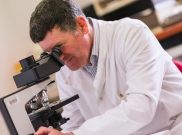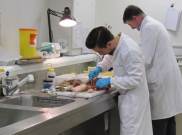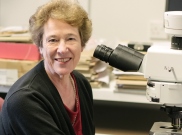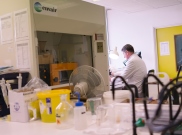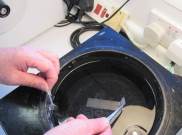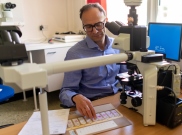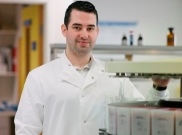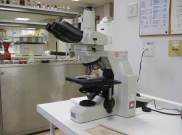Musculoskeletal Histopathology
Cellular and Molecular Pathology (Histopathology)
We are a specialist unit for musculoskeletal pathology including bone and soft tissue tumours and joint disease and muscle biopsy. Previously accredited under the CPA scheme, our laboratory gained UKAS accreditation in September 2022. Our UKAS accreditation reference number is 21187.
What does the pathologist do?
Pathologists have been making diagnoses using a microscope for the last 250 years.
It can be challenging and we constantly endeavour to improve how we do our job.
As Pathologists for the Sarcoma Service, we are given small amounts of tissue from a swelling or an area of abnormality seen on an x-ray or scan and asked to say what the abnormal tissue is.
We have to decide if the tissue is a tumour, and if a tumour, is it a benign tumour (the tumour does not spread to other parts of the body), or a malignant tumour (cancer).
The tissue may also be from an area of infection (an abscess or tuberculosis).
Today, different tumour types can be treated differently, so making the correct diagnosis is important.
What is a tumour?
Tumours are caused by cells in our body growing too fast: if they are malignant the cancer cells may spread to other parts of the body.
We now know that tumours are caused by genetic alterations (mutations) in parts of our body.
For example, if a patient has a lung cancer the genetic alterations (changes in the DNA/mutations) occur in the cells in the lung.
Cancer of muscle, bone, and fat, are known as sarcoma. This is a rare form of cancer accounting for no more than 2% of all cancers diagnosed.
The genetic alterations can act as biomarkers and help in making a diagnosis of a particular cancer type. More recently it is also recognised that specially designed drugs can interfere with the genetic alterations and block tumour cells growing. An example of this is the treatment of Gastrointestinal Stromal Tumour (GIST) being treated with Imatinib/Gleevec.
However, for most sarcomas the mainstay of treatment is surgery but some sarcomas are treated with chemotherapy and or radiotherapy before or after surgery.
Because different diseases require different treatments, the role of the pathologist is important in the overall management of a patient.
